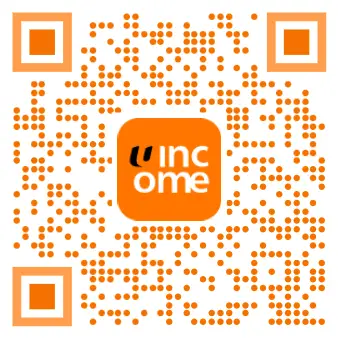Here’s Why Your Company Insurance May Not Be Enough

When starting a new job, most people pay attention only to employee benefits like annual leave and bonuses but there is also one other core benefit that is worth considering – company insurance. Also known as group employee insurance, company insurance is usually given as part of your employee benefits and comes with coverage that helps you manage medical costs.
For someone who has just entered the workforce, free insurance coverage sounds great, especially if you have not purchased your own personal insurance plans yet. But is your company insurance enough? How does company insurance compare to having your own personal insurance, and do you need both?
Get these questions answered as we compare company insurance vs personal insurance, with a deeper look into the types of company insurance available, what they do for you, their limitations, and why you should absolutely still have your own personal insurance plans.
How does company insurance work?
Most companies offer group insurance as part of their employee benefits package. Depending on the organisation, the benefits could include basic health insurance coverage, partial or full reimbursements of your medical and dental expenses, or even insurance coverage for critical illnesses and so on.
Sometimes, the benefits provided in company insurance are also used as a differentiator to attract and retain talents. As the cost of healthcare continues to rise, comprehensive insurance coverage can make a huge difference, especially if your company insurance includes coverage for your dependants. Just imagine the peace of mind you’ll get, knowing that your medical fees or your loved ones’ will be covered under your group insurance.
However in most cases, company insurance is served as a one size fits all package. Some organisations may offer different coverage to employees depending on employee grade level or even age, such as higher benefit limits for higher-ranked employees, or giving older employees a larger allowance for health screenings.
Nonetheless, the benefits are banded and as its name suggests, group insurance was developed for groups to fulfil the most common of needs. It is hardly something that you can customise on an individual level to meet all your specific needs, ultimately resulting in a protection gap.
For this reason, it’s important that you have sufficient personal insurance. Besides getting the protection you’ll need, having your own personal insurance also means you’ll have something to fall back on should anything happen to your job and the coverage that comes with it.

Types of company insurance and their coverage
Company insurance can usually be split into two categories - portable and non-portable insurance plans.
Portable Insurance
Portable insurance plans are plans that you can retain even after you have left the company.
This includes:
Portable Medical Benefits Scheme (PMBS): Under this scheme, your employer makes additional contributions to your MediSave account as part of employee benefits, which you can use to pay for your MediShield Life and Integrated Shield Plan (IP) premiums as well as ElderShield or CareShield Life supplements. This allows you to control the amount of coverage you wish to receive and also ensures you’ll receive continuous medical coverage even after switching employers.
Transferable Medical Insurance Scheme (TMIS): This is an enhanced group hospitalisation and surgical insurance that gives you extended inpatient coverage of up to 12 months when you are in-between employment. Your coverage will also continue, including pre-existing conditions, as long as you join another company that is on the same scheme.
Providing a Shield plan: Under this option, your employer provides you with inpatient medical benefits via MediShield Life or an IP by paying the premiums for it. This can be through direct payments to the insurance company, cash reimbursements or MediSave contributions.
The continued coverage and transferability of portable insurance plans are a big boon for employees. However, these are usually more expensive and require more work to manage, which makes it uncommon among most companies in Singapore.
Non-portable insurance
The more common type of company insurance, non-portable insurance plans usually come in the form of Group Term Life and Group Medical and Hospitalisation Insurance. These are only effective when you are employed at the company.
Group Term Life: It covers Death and Total and Permanent Disability (TPD), and is usually available as an opt-in, where you will have to pay your own premiums, albeit at a cheaper rate.
Group Medical and Hospitalisation Insurance: The more common of the two, this covers your medical expenses for visits to the GP or specialist, as well as hospitalisation and surgical fees. In some companies, you may have the option of choosing higher-tier benefits or extending the medical insurance to your dependants by paying a larger premium.
While some coverage is better than no coverage, take note that non-portable group insurance comes with its own set of limitations.
Limitations of non-portable company insurance
When it comes to non-portable plans, what you see is often what you get. Want to increase your coverage or get covered for a pre-existing condition? Or perhaps you prefer staying in a Class A ward if you get hospitalised?
With non-portable company insurance, you’re often limited to a fixed scope of coverage, co-payments and hospital ward entitlements, such as in this example.
Having said that, some companies may offer you different tiers of coverage to choose from but ultimately, it’s still a case of choosing from what they can offer you rather than picking what you actually need.
However, the biggest limitation of all would be the fact that your insurance coverage ends the moment you leave the company. With increased job movements, whether by choice or otherwise, having sufficient personal insurance ensures that you’re well covered no matter what happens.
Doing so also ensures you’re not stuck in the scenario where you risk losing coverage for conditions that you develop while in between jobs.
But what if my company insurance overlaps with my personal insurance, you might ask. Well, let’s just say that being over-insured beats being under-insured. Rather than relying solely on company insurance, close your protection gap by getting sufficient personal insurance.
Best personal insurance policies to buy
Not sure how to begin supplementing your personal coverage? Start with these four must-have insurances: health insurance, life insurance, a savings plan and a retirement plan.
Health insurance helps defray the cost of huge medical bills and includes your MediShield Life and IPs like Enhanced IncomeShield.
Meanwhile, life insurance protects you and your loved ones against life’s unexpected events. For instance, Income's Complete Life Secure is designed to provide lifelong coverage. It offers the flexibility to choose a Multiplier Cover1,2 of up to 500% of the sum assured till the age of 65, 75, or 80, covering death, terminal illness, and total and permanent disability. You can also enhance your protection with supplementary riders like Early Critical Secure rider3 and Advanced Critical Secure rider4, which covers up to 159 conditions, including early, intermediate and advanced stage dread diseases3,4,5.
If you’re always on the move, have a job that places you at higher risk of accidents, or simply lead an active lifestyle, consider adding personal accident insurance to your repertoire.
Once you’ve protected yourself, it’s time to focus on reaching your financial goals. Whether it’s saving up for your child’s tertiary education or planning for your retirement, savings and investment plans can help give you a boost in your financial planning.

Supplement your company insurance with personal insurance
Company insurance can be great when it provides the coverage that you need. But most times, you don’t have a choice in the kind or amount of protection you’re getting. You also risk being underinsured or getting stuck in the future if you rely solely on your company insurance.
For these reasons, it’s prudent to start building your own portfolio of personal insurance that matches your specific needs and financial goals. Need help figuring this out? Speak to one of our friendly advisors to get started today!
1 Multiplier cover means a percentage of the sum assured shown in the policy schedule. The Multiplier Cover is applicable before the anniversary immediately after the insured reaches the age of 65, 75 or 80 (whichever is applicable).
2 Complete Life Secure includes a non-participating regular premium compulsory rider, Complete Life Secure – Protection Benefit. It pays the Retrenchment Benefit and part of the Multiplier Cover. Please refer to the policy conditions for further details.
3 Any payment made for Dread Disease Benefit under this rider will form an accelerated payment, and reduce the sum assured and any bonuses of this rider and its basic policy by the same amount that we pay under this rider.
For policies issued by us that include early and/or intermediate dread disease of the same dread disease, we will pay no more than $350,000 for the same dread disease for each insured (no matter how many policies we have issued to cover each insured).
Please refer to the policy conditions for further details.
4 Any payment under this rider will form an accelerated payment, and reduce the sum assured and any bonuses of this rider and its basic policy by the same amount that we pay under this rider. Please refer to the policy conditions for further details.
5 The total benefits (in relation to any dread disease benefits or equivalent benefits) under all policies, whether issued and paid by us or any other insurer, cannot be more than $3.6 million (including premiums waived due to dread disease but excluding bonuses) (“Dread Disease Per Life Limit”). Please refer to the policy conditions for further details.
This article is meant purely for informational purposes and does not constitute an offer, recommendation, solicitation or advise to buy or sell any product(s). It should not be relied upon as financial advice. The precise terms, conditions and exclusions of any Income Insurance products mentioned are specified in their respective policy contracts. Please seek independent financial advice before making any decision.
These policies are protected under the Policy Owners’ Protection Scheme which is administered by the Singapore Deposit Insurance Corporation (SDIC). Coverage for your policy is automatic and no further action is required from you. For more information on the types of benefits that are covered under the scheme as well as the limits of coverage, where applicable, please contact Income Insurance or visit the GIA/LIA or SDIC websites (www.gia.org.sg or www.lia.org.sg or www.sdic.org.sg).
This advertisement has not been reviewed by the Monetary Authority of Singapore.
Related Articles





